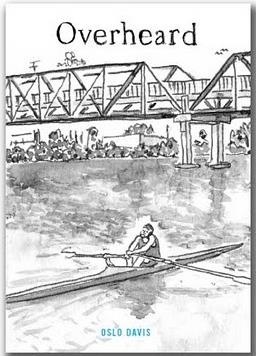Content aggregators now have the power and access that used to belong to agents and artists’ managers.
In 2011, the Canadian arm of international accounting giant PWC prepared a report on the cultural industries for the Ontario Media Development Corporation. Ontario’s biggest city is Toronto, the original home of Hollywood’s ‘runaway production’. It is still one of the largest centres of film and TV production in the world.
The report, entitled ‘Digital transformation of creative media industries‘, was a fancy analysis of the opportunities and challenges for Ontario’s cultural industries. The opportunities were straightforward: ‘access to a global marketplace’ came top of the list. But the challenges were rather more original. One of the most important was headed ‘access to consumers’.
‘It is a challenge,’ PWC wrote, ‘for many content producers in the cultural media industries in the digital space, as they become disengaged from their consumers when distributing content through larger international aggregators. Access to consumers is critical.’
Who are these aggregators, and what does the term mean?
Actually, you already know. If you’ve ever surfed through Google News, read the Huffington Post or watched something on YouTube, you’ll have experienced content aggregation. Content aggregators pose disruptive risks to traditional publishers, producers and media creators: HuffPo, for instance, is already grabbing more eyeballs than nearly every mainstream US newspaper, despite paying for only a tiny sliver of the content it features on its site. Similarly, Google News has quickly established itself as the premier news aggregation and analysis website for readers wanting a sense of how multiple news sources have reported a certain story.
As the bean-counters at PWC note, the rise of the content aggregators poses big challenges for the people that make art and culture. In the good old days, artists found audiences largely by two methods: through a large media company that had already captured a significant audience (like a TV network, a movie studio or a big book publisher), or via the old-fashioned method of touring, touring, and more touring.
The new environment still requires plenty of shoe leather, but in many industries like newspapers and music publishing, revenue for big content has collapsed. And the shortfall has flowed on to hurt artists and creators. For a dramatic example of what that means, look no further than Australia’s Fairfax Media. Some of the journalists who used to work for Fairfax are now working for other news organisations, but many more are freelancing on lower wages, or have left the industry altogether. You can still start a Tumblr blog in ten minutes, but can you find anyone will pay the rent?
Spare a thought, then, for the people that make their money by being the middlemen between artists and big content: agents and managers.
Agents have always existed in the cultural industries, because there is money to be made mediating between artists and producers. Content producers need talent: without it, the show can’t go on. Equally, artists need an outlet for their work. In a very human industry, agents ply a trade by being the go-between in the spaces between creators and their producers.
You might have thought that the huge changes in the cultural industries brought on by the internet would threaten artist representatives and managers. In fact, it appears to be strengthening them. In a world where content is king, the role of agents and managers is growing. As audiences splinter into a bewildering myriad of niches, the businesses that are prospering are the ones that can match talent to those audiences, and clip a ticket along the way. If the timing and the opportunity is right, they might even put money on the table and take a financial stake in a show. They are a new type of aggregator. Call them the talent aggregators.
Comedy agency Token is a good example. Comedy is a classic cultural industry, full of outsize egos and artists with very particular view. It’s also growing rapidly. Token has built up a stable of comedic talent that includes some of the best-known entertainers in the country, such as Will Anderson, Dave Hughes, Adam Hills and Rove McManus.
According to managing director Kevin Whyte, Token is more than simply a traditional agency. It operates up and down the value chain. ‘The Token business, our stand-up comedians have relatively specific needs, so we take care of everything from live touring to TV production.’ Whyte explains that Token helped set up Roving Enterprises with Rove McManus, for example. ‘We often act as executive producer on some of our clients TV projects.’
‘But we also act as more conventional negotiators and mediators between artists and production companies, so Will Anderson on Gruen Planet, that’s produced by CJZ, we act as a representative there. But with Josh Thomas’ Please Like Me, we put the finance together and acted as executive producers on that project.’
‘We do a large amount of traditional agenting, for want of a better word,’ Whyte continues, ‘but when our clients create ideas, we look at what’s the best way for that idea to be executed … I think in the contemporary environment as traditional media models evolve and change, so does the role of managers and agents.’
Jeremy Wortsman is the director of illustration and graphic design agency, the Jacky Winter Group. The group’s roster includes a suite of artists and designers, including prominent names such as Tin & Ed, Oslo Davis and Craig and Karl.
‘When we try to explain what we do, we’re exactly what a literary agent is or a music manager, except we represent image-makers instead of writers or musicians,’ Wortsman tells ArtsHub. ‘We source talent, we find people who are talented or show promise of talent.’
Like a traditional agency, Jacky Winter takes a cut of its artists’ earnings, clipping a ticket on work that comes through the agency. ‘At the end of the day, agencies are aggregators. There’s this misconception that once someone signs to an agency, they have this magic ket that make money appear. Expectations can be really misaligned, and that’s why we really enjoy working with artists who have been running their successful practice for some time.’
Wortsman’s background is in art direction and publication design. ‘I used to assign illustrations, so the business started as a side project.’ When Jacky Winter started, he represented 12 illustrators; since then it has expanded rapidly. ‘We’ve really gone beyond illustration into more image-making in general.’ Last year, Wortsman launched a photography agency called The Twitchery. ‘The new business model is that we’re providing a more holistic solution – getting a whole team together depending on a brief.’
Jacky Winter finds its clients in the traditional way: by providing a single point of contact for businesses looking for talent. ‘We have access to much larger ad agencies and studios that prefer having a single point of contact,’ Wortsman says. ‘It’s going to be difficult for an art buyer or production manager to develop a new relationship with a new artist every time they need something done.’
Prominent Melbourne cartoonist Oslo Davis was one of Jeremy’s first clients at Jacky Winter. I basically did all my own door-knocking, cold-calling, posting out stuff,’ he says. ‘I hadn’t had an agent but when Jeremy approached me I thought it was a good idea – and still do.’
For Davis, the role of a representative retains the classic dimension of career advice and strategy.
‘I think because I have a very good relationship with Jeremy – I see him as a friend as someone who can get me work – I feel I can catch up with him for lunch and talk about ideas, strategise, and get his advice on stuff.’
‘If I get work that comes directly with me, he’s always been very cool with the fact that I could look after it, or I could handball it over to him, which is nice.’
Even for more traditional agents and representatives, industrial change is forcing new thinking and new adaptations. To see how, ArtsHub spoke to literary agency Curtis Brown Australia.
According to Curtis Brown’s Fiona Inglis, the fundamentals of her business haven’t changed. ‘I think there are people who are dedicated to writing and want to make it a career, and they need agents to help them along,’ she says.
On the other hand, the industry has, with book publishing experiencing rapid change as web retailing, e-books and digital readers have transformed a formerly staid industry. ‘Our income is diminishing,’ Inglis admits. ‘Book sales are down and a lot of books are now e-books, there is some evidence that people are buying e-books rather than in print form, and e-books are much cheaper. And so income to authors is lower, and their income to us is lower a a result.’
The rapid change has forced Curtis Brown to adapt. For instance, the agency spends an increasing amount of time negotiating movie deals and other forms of intellectual property exploitation for its authors. In a risky industry, it’s work that can often go unrewarded.
‘We do a lot of contract for films that involve a lot of work that doesn’t go anywhere, of ten books, only one goes to second option, and only one in ten goes to get made, so only one in 100 gets made,’ Inglis explains. ‘But if one does get made, that represents a lot of income.’
The dominance of Amazon represents the single most salient feature of the book industry currently, and that poses challenges for agents as well as authors and publishers. ‘There are some agencies that are negotiating agreements with e-book only publishers,’ Inglis says, ‘but we are still keen to do business with our traditional contacts, because they’re doing good jobs.’
‘You know, Amazon tell us they can market e-books better than anyone else. Someone made this analogy to me once: don’t think of Amazon as biggest e-marketer in the world, think of it as biggest river in the world, and your book is a pebble on the bottom of the river bed.’
Artist managers and agents have always made their money as middlemen, providing a conduit between consumers and talent. In an era of digital publishing, that role remains as relevant as ever. ‘We know that everyone who has a computer thinks they can write a book,’ Inglis asserts, ‘so my philosophy is: don’t exploit authors you know are never going to be published. Work with ones you think have real talent and real dedication.’
Kevin Whyte agrees. ‘I think it’s a great time to be a creative person,’ he says. ‘Social media has been a revolution for comedians in particular, because you can connect to people who might enjoy your material, without having to ask the permission of a traditional media executive. While it might not be easy to monetise that, those people will come to your shows.’





